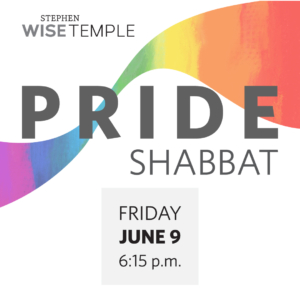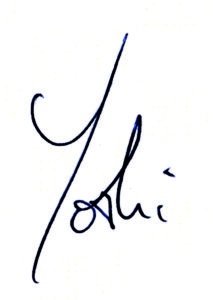This Shabbat we read from parashat B’ha’alot’cha, whose name is taken from the rather unusual word used to describe the lighting of the menorah in the Tabernacle and then the Temple. We would expect to see the word we are familiar with from lighting Shabbat and festival candles: l’hadlik (“to kindle”). This word, b’ha’alot’cha (בְּהַעֲלֹתְךָ), is connected to a Hebrew root that is known to many Jews: aliyah (עליה), “to go up.”
Voices in our tradition ascribe spiritual meaning to this word choice, meaning which connects both to our daily lives and to this moment in our secular calendar.
 The Talmud instructs us that this unusual form (which also appears in Exodus when the menorah is first mentioned) teaches us something about our inner lives. We are commanded to light the menorah “so that the flame ascends of itself.” (Talmud, Shabbat 21a) Many commentators understand the menorah here as a metaphor for the spiritual light each of us is capable of bringing into the world. We are commanded in this way to be menorot, to bring wisdom and understanding into the world, igniting in others the flame of enlightenment that will ascend in them and which they, in turn, will pass on to others.
The Talmud instructs us that this unusual form (which also appears in Exodus when the menorah is first mentioned) teaches us something about our inner lives. We are commanded to light the menorah “so that the flame ascends of itself.” (Talmud, Shabbat 21a) Many commentators understand the menorah here as a metaphor for the spiritual light each of us is capable of bringing into the world. We are commanded in this way to be menorot, to bring wisdom and understanding into the world, igniting in others the flame of enlightenment that will ascend in them and which they, in turn, will pass on to others.
Our job is to spread the light in such a way that others are not merely enlightened by our knowledge, but empowered by it, so that the flame continues to rise up in them long after we depart.
I was thinking of this beautiful and instructive teaching this week when I came across the words of Rabbi Jonathan Leener, an Orthodox colleague who leads the Prospect Heights Shul in Brooklyn. His piece in The Forward this week brings light and understanding about Jewish teachings around human sexuality and LGBTQ+ inclusion that are particularly relevant today.
He writes: “While most of the Jewish community celebrates Pride month this June, the mainstream Orthodox community’s unsupportive attitude toward LGBTQ+ Jews reminds us that there is still much work to be done. As a straight, cis, Orthodox rabbi, my involvement in the movement may seem complicated.” Rabbi Leener acknowledges that the “Torah and rabbinic tradition clearly have much to say about homosexuality, none of it good. But my primary responsibility as a rabbi is to protect the dignity of every human being, regardless of their sexual orientation. Today, that includes standing up for LGBTQ+ Jews.”
That an orthodox rabbi of a prominent New York synagogue would publish such a piece demonstrates to me the way in which, over time, the light of our Torah tradition continues to “ascend” and transform, so that it might shine forth wisdom in new ways.
His important piece focuses on how LGBTQ+ inclusion embodies the core Jewish values of pikuach nefesh (saving lives), and k’vod ha-briyot, protecting human dignity and caring for the most vulnerable. Rabbi Leener admits that his opinion is outside of mainstream orthodoxy. His argument, though, makes it clear that our halakhic (Jewish legal) tradition points us toward the conclusion that “full inclusion of the LGBTQ+ community is not an act of kindness, but a religious imperative. And when every Jew feels included and welcomed, the rest of the community stands to benefit as well.”
This is how we become menorot—the ones who kindle understanding so that we and others can cause light to ascend in us, in others, and in our world.
Join me tonight at our Pride Shabbat services in person or online as we welcome our members Jordan Golshan, a Wise School graduate, and her wife, Adriana, to our bimah to share their story. Additionally, please join me and members of our broader Jewish community at L.A. Pride this Sunday.
Shabbat Shalom,

—Rabbi Yoshi
